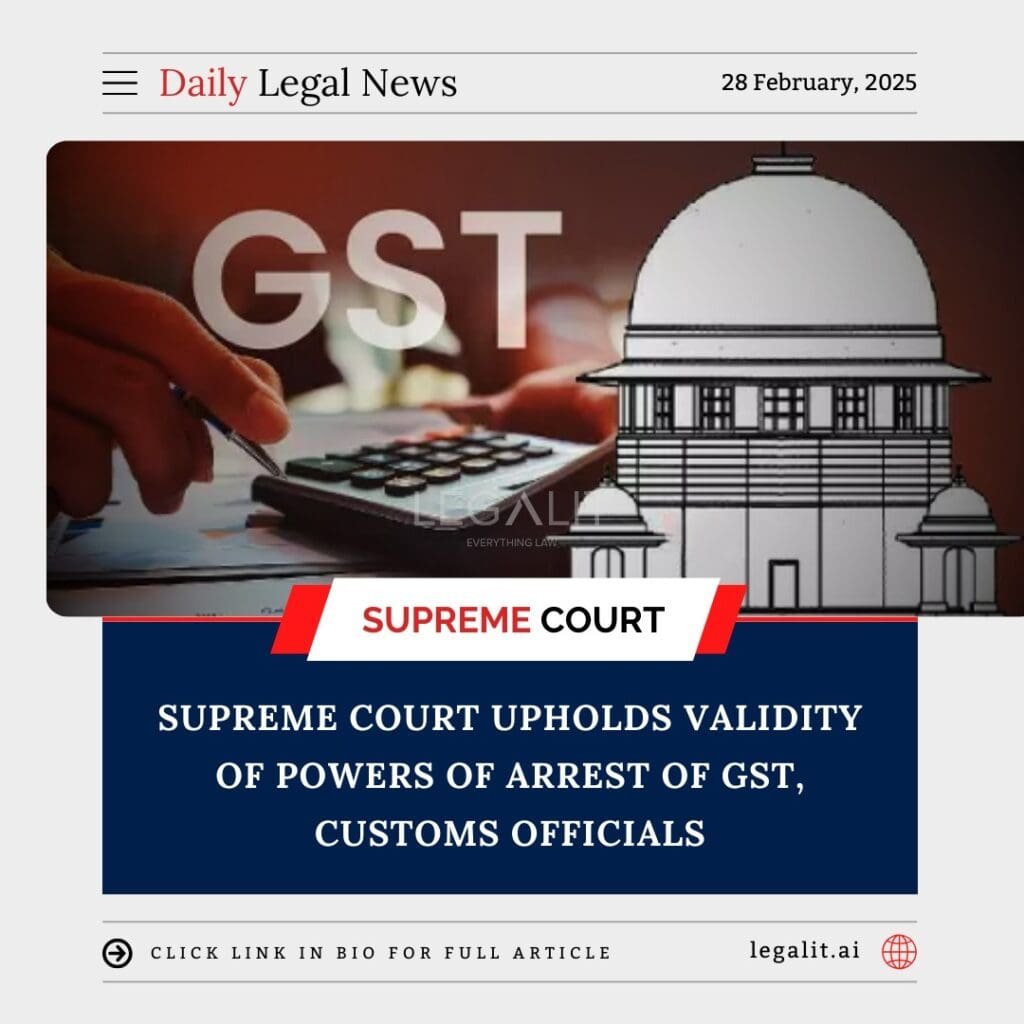
Background
The Supreme Court has upheld the validity of the powers granted to GST and Customs officials to arrest individuals suspected of tax evasion. The ruling came in response to multiple petitions challenging the constitutional validity of these powers under the Central Goods and Services Tax (CGST) Act, 2017, and the Customs Act, 1962. Petitioners argued that such powers violated fundamental rights and could lead to arbitrary arrests.
The case primarily questioned whether tax officials should have the same authority as traditional law enforcement agencies, such as the police, to detain and prosecute individuals for economic offenses. The petitioners contended that arrest provisions could be misused, causing undue harassment to businesses and individuals.
Court’s Rationale
The Supreme Court, in its judgment, ruled that the powers of arrest conferred upon GST and Customs officials were constitutionally valid and necessary to curb tax evasion. The key observations made by the court were:
- Statutory Mandate
- The CGST Act and the Customs Act explicitly provide for the arrest of individuals involved in serious tax fraud. The court held that these provisions were enacted to ensure compliance and prevent large-scale tax evasion.
- Economic Offenses are Serious Crimes
- The bench observed that tax evasion affects the national economy and cannot be treated lightly.
- The court reiterated that economic offenses are grave in nature and require strict enforcement mechanisms, including arrest and prosecution.
- Not a Violation of Fundamental Rights
- Petitioners argued that these provisions violated Articles 14 (right to equality) and 21 (right to life and liberty) of the Constitution.
- However, the court ruled that the provisions had sufficient safeguards, including judicial oversight, and were not arbitrary.
- It emphasized that arrest powers must be exercised in compliance with legal procedures to prevent misuse.
- Judicial Oversight and Safeguards
- The court clarified that GST and Customs officials must follow due process before making arrests.
- It reaffirmed that individuals arrested under these laws have the right to seek bail and challenge their detention in court.
Existing Measures
- Section 69 of the CGST Act empowers authorities to arrest individuals involved in tax evasion exceeding ₹5 crore.
- The Customs Act also allows for arrest in cases of smuggling, fraudulent declarations, and misdeclaration of goods.
- The Supreme Court had earlier ruled that tax-related offenses should not be treated casually, as they impact public revenue and economic stability.
Conclusion
The Supreme Court’s ruling reinforces the government’s stance on tackling tax fraud and economic offenses. By upholding the validity of these arrest powers, the court has signaled that tax evasion is a serious offense warranting strict action. However, the judgment also underscores the need for procedural safeguards to prevent misuse and ensure that enforcement measures do not lead to undue harassment.